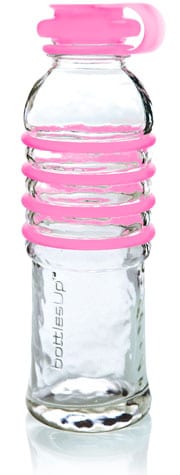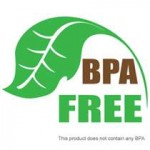Laurel Herter with BottlesUp on WHHI-TV’s “Girl Talk”
Watch Laurel Herter, creator of bottlesUp Glass Water Bottles in “Girl Talk”.
Laurel Herter with BottlesUp on WHHI-TV’s “Girl Talk” Read More »
Watch Laurel Herter, creator of bottlesUp Glass Water Bottles in “Girl Talk”.
Laurel Herter with BottlesUp on WHHI-TV’s “Girl Talk” Read More »

BottlesUp is proud to be affiliated with The Breast Cancer Research Fundation Read More »

What tips would you add?
Top 10 Ways to Avoid BPA Read More »

How’d they do it? They replaced canned or plastic packaged food with fresh foods for three days, testing families before, during and after. You can get the full details of the study here. What really strikes me though, is the dramatic impact after only three days. The takeaway from The Breast Cancer Fund and Silent Spring Institute which conducted the study:
“…you can reduce your BPA exposure by cooking fresh foods at home, avoiding canned foods, choosing glass and stainless steel food and beverage containers, and not microwaving in plastic.”
Better still, they offer a handy wallet card or mobile card listing 10 top packaged foods to avoid. They also recommend using glass or stainless steel food and beverage containers.
The study was conducted by Breast Cancer Fund and Silent Spring Institute, with funding from the Passport Foundation.
New Study: Food Packaging Impacts BPA Levels in People Read More »
Should we all be surprised? A new study from the researchers at Environmental Health Perspectives confirms that plastics – from plastic sippy cups to plastic water bottles to plastic wrap – release chemicals that mimic the sex hormone estrogen.
The researchers bought more than 450 products that come in contact with food or beverage from your everyday stores like Whole Foods and Walmart. In lab testing, which isn’t as volatile as the real-world where we get hot sun, cold refrigeration, microwaves and freezers, more than 70% of the products leached estrogenic chemicals.
This chemical release even happens from BPA-free plastic, long thought to be the only plastic chemical culprit to potentially affect our health. In the study, researchers took plastic water bottles and plastic baby bottles that are BPA-free and 100% of them leached estrogenic chemicals.
You can read the full study here and decide for yourself. For our team at BottlesUp, you can understand why we’re committed to zero plastics in our products and our packaging. Join in and take a vow now to minimize plastic and when you can – go glass.
New Study Confirms Everyday Plastics Leach Chemicals Read More »